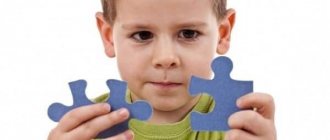Communication, actions, and interaction of people are formed on the basis of behavioral norms. Each individual independently determines for himself the rules of acceptable behavior in society. Behavior depends on many factors (character, psychotype, consciousness, upbringing, intelligence, perception, moral principles), but is primarily based on the ways of manifestation and application of one’s own abilities and capabilities.
Many sciences believe that behavior is a person’s reaction to various external and internal manifestations of the environment, which are clearly visible in emotional reactions (conscious and instinctive), as well as communication manifestations. Therefore, social behavior is associated with the interaction and actions of people towards each other.
Concept of social behavior
The concept of “behavior” came to sociology from psychology. The meaning of the term “behavior” is different, different from the meaning of such traditional philosophical concepts as action and activity. If action is understood as a rationally justified act that has a clear goal, strategy, carried out using specific conscious methods and means, then behavior is solely the reaction of a living being to external and internal changes. It is this reaction that can be both conscious and unconscious. So, purely emotional reactions - laughter, crying - will also be behavior.
Social behavior is a set of human behavioral processes associated with the satisfaction of physical and social needs and arising as a reaction to the surrounding social environment. The subject of social behavior can be an individual or a group.
If we abstract from purely psychological factors and think at the social level, then the behavior of an individual is determined primarily by socialization. The minimum of innate instincts that a person possesses as a biological being is the same for all people. Behavioral differences depend on qualities acquired during the process of socialization and, to some extent, on congenital and acquired psychological individual characteristics.
Except for the above, the social behavior of individuals is regulated by the social structure, in particular the role structure of society.
A social norm of behavior is behavior that completely conforms to status expectations. Thanks to the existence of status expectations, society can predict the actions of an individual in advance with sufficient probability, and the individual himself can coordinate this behavior with the ideal model or model accepted by society. Social behavior that meets status expectations is defined by the American sociologist R. Linton as a social role. It is this interpretation of social behavior that is closest to functionalism, since it explains behavior as a phenomenon determined by social structure. R. Merton introduced the category of “role complex” - a system of role expectations determined by a given status, as well as the concept of role conflict that arises when the role expectations of the statuses occupied by a subject are incompatible and cannot be realized in any single socially acceptable behavior.
The functionalist understanding of social behavior was subjected to fierce criticism from, first of all, representatives of social behaviorism, who believed that it was necessary to build the study of behavioral processes on the basis of the achievements of modern psychology. The extent to which the psychological aspects were really overlooked by the role interpretation of the command follows from the fact that N. Cameron tried to substantiate the idea of the role determination of mental disorders, believing that mental illness is an incorrect performance of their social roles and the result of the patient’s inability to perform them as ϶ᴛᴏ is needed by society. Behaviorists argued that in the time of E. Durkheim, the successes of psychology were insignificant and therefore the functionality of the expiring paradigm met the requirements of the time, but in the 20th century, when psychology reached a high level of development, its data cannot be ignored when considering human behavior.
Socialization in adulthood
At the third stage, characterized by social maturity, an adult (18-60 years old) acquires independence as an economic agent. He (she) personally earns money to support his life and starts his own family.
At the stage of maturity, the social role of a person acquires various legal statuses (husband, wife, father, mother). He also enjoys professional and official statuses. Through the latter, power can be entrusted to him. The social maturity of a person is manifested in his active participation in the social life of various communities around him - industrial, national, tribal.
Forms of human social behavior
People behave differently in one or another social situation, in one or another social environment. For example, some demonstrators peacefully march along the declared route, others seek to organize unrest, and still others provoke mass clashes. These various actions of social interaction actors can be defined as social behavior. Consequently, social behavior is the form and method of manifestation by social actors of their preferences and attitudes, capabilities and abilities in social action or interaction. Therefore, social behavior can be considered as a qualitative characteristic of social action and interaction.
In sociology, social behavior is interpreted as: o behavior expressed in the totality of actions and actions of an individual or group in society and depending on socio-economic factors and prevailing norms; o external manifestation of activity, a form of transformation of activity into real actions in relation to socially significant objects; o a person’s adaptation to the social conditions of his existence.
To achieve life goals and when implementing individual tasks, a person can use two types of social behavior - natural and ritual, the differences between which are fundamental.
“Natural” behavior, individually significant and egocentric, is always aimed at achieving individual goals and is adequate to these goals. Therefore, the individual does not face the question of the goals and means of social behavior: the goal can and should be achieved by any means. The “natural” behavior of an individual is not socially regulated, therefore it is traditionally immoral or “unceremonious.” Such social behavior is “natural”, natural in nature, since it is aimed at ensuring organic needs. In society, “natural” egocentric behavior is “forbidden”, therefore it is always based on social conventions and mutual concessions on the part of all individuals.
Ritual behavior (“ceremonial”) is individually unnatural behavior; It is thanks to this behavior that society exists and reproduces. Ritual in all its variety of forms - from dataket to ceremony - permeates all social life so deeply that people do not notice that they live in a field of ritual interactions. Ritual social behavior will be a means of ensuring the stability of the social system, and the individual who implements various forms of such behavior participates in ensuring the social stability of social structures and interactions. Thanks to ritual behavior, a person achieves social well-being, constantly being convinced of the inviolability of his social status and the preservation of the usual set of social roles.
Society is interested in ensuring that the social behavior of individuals is of a ritual nature, but society cannot engage in self-centered social behavior, which, being adequate in goals and unscrupulous in means, always turns out to be more beneficial for the individual than “ritual” behavior. Therefore, society strives to transform forms of “natural” social behavior into various forms of ritual social behavior, incl. through socialization mechanisms using social support, control and punishment.
Such forms of social behavior as:
- cooperative behavior, which includes all forms of altruistic behavior - helping each other during natural disasters and technological disasters, helping young children and the elderly, helping subsequent generations through the transfer of knowledge and experience;
- parental behavior - the behavior of parents towards their offspring.
Aggressive behavior is presented in all its manifestations, both group and individual - from verbal insults of another person to mass extermination during wars.
About the levels of socialization of a child
Socialization of infancy is called primary. A child comes into the world. like a blank slate (tabula rasa), completely unaware of what society is. He soon discovers that the space around him is inhabited by other people. They are the ones who build patterns (templates, matrices) for the baby to understand the world around him.
The sphere of social control surrounding each individual becomes more complex in proportion to his evolving social behavior.
The child's secondary socialization coincides with his acquisition of formal education. Its main mission is intellectualization, acquiring logical thinking skills. The child loses his unique status, characteristic of his positioning in the family, becoming equal at school with his fellow students. At the same time, it is at the stage of education that he receives primary ideas about the state, social inequality, and the dominant ideology in society. Throughout his socialization, the child remains under the care of his parents.
Signs of deviant behavior
There are clear signs that an individual’s actions are deviant behavior, namely
:
- Inconsistency with generally accepted social norms;
- Violation of these norms;
- Negative assessment of others, imposition of sanctions;
- Causing harm to yourself and others;
- Persistence – the antisocial act is repeated many times;
- Social maladjustment;
- The general orientation of the personality is destructive.
The last feature, however, is controversial. After all, the concept of deviant behavior also includes cases such as talent, genius, heroism and self-sacrifice. Such actions and manifestations also violate some established rules, but ultimately their goal is the creation, sometimes even the salvation of society.
Propaganda
Edward Bernays, Freud's Nephew and the father of propaganda and public relations, used many of his uncle's theories to create new techniques in marketing. In Propaganda
, he published: “If we understand the mechanism and motives of the group mind, it is now possible to control and regulate the masses according to our will without their knowledge.”[4] He used the herd theory to create public relations, thereby conditioning the population's need for certain goods from certain manufacturers. In the same publication he stated: “An individual factory, potentially capable of supplying an entire continent with its particular product, cannot afford to wait until the public demands its product; she must maintain constant contact, by means of advertising and propaganda, with a vast public in order to secure for herself the constant demand which alone will make her costly enterprise profitable."[4] His theories and applications in social conditioning continue throughout his work.
What is deviant behavior
Under deviant behavior
It is common to understand actions that contradict established social norms.
The persistent manifestation of deviations forces society to apply sanctions to this person - isolation, punishment, correction, treatment.
Simply put, deviation is a violation of any rules. In this regard, psychologists claim that the vast majority of people on the planet are deviants. Indeed, it is difficult to live your whole life without violating a single established rule - this means not only state legislation, but also some informal regulations, such as the need to communicate with friends in your free time. Too much work ethic (“workaholism”) and a passion for dieting are also deviations.
Socialization of pensioners
Socialization of old age consists of a person’s gradual withdrawal from active work. Its meaning lies in a retreat from the egoistic stagnation characteristic of retirement age, manifested in:
- decreased manifestations of the spirit;
- being stuck in the past;
- in interruption of connection with the present time;
- organizing a new social circle.
Possible areas of such specialization are an active social position in the education of the younger generation, in social groups at the place of residence (yard committee, dacha cooperative, etc.)
Types of deviant behavior
Psychology, sociology and medicine have their own approaches to defining deviant behavior and classify its types in different ways. Different scientific directions even define actions and actions differently - one school considers some action “normal”, while another considers it deviant.
One of the existing classifications of deviant behavior was proposed by Ts.P. Korolenko and T.A. Donskikh - domestic psychiatrists.
- Non-standard behavior
- in this case, the individual violates some rules, but in general his activities are positive and useful for society. - Destructive behavior
– has a destructive orientation. In this case, externally destructive and internally destructive actions are distinguished. In the first case, a person either uses certain means to escape reality and get the desired emotions (alcoholism, drug addiction, gambling, etc.), or directly violates laws and causes harm to others.
In the second case, a person’s actions are aimed at direct self-destruction - suicide, fanaticism, conformism, narcissism, etc.
Human behavior itself is a reaction to social norms. There can only be a few such reactions, and their description was given at one time by Robert King Merton, one of the greatest sociologists of the twentieth century.
Each society forms both the goals of its existence and the means of achieving them, and each individual responds to this through one of the possible reactions
:
- Submission - complete submission to both goals and means of achieving them;
- Innovation - the individual submits to the goals of society, but uses other means to achieve them;
- Ritualism - the goal is rejected as unattainable, but a “mechanical” adherence to traditions remains;
- Retreatism is withdrawal from society due to disagreement with its goals and means;
- Rebellion is an attempt to bring a new order to society, to change both goals and means.
Three of these types of behavior are outright deviant
But ritual behavior in most cases is not perceived as deviant: society, as a rule, pays attention only to the external side of the behavior of individual people. There is an opinion that almost all members of society profess ritual behavior without thinking about the purposes of existence or even outright denying them
Individual, personality, individuality - differences
The concepts of personality, individuality and individual cannot be identified; they are different. It is important to know what a word means so that you can use it in the correct context. The division according to Ananyev B.G. is in the table below.
| Concept. | Brief definition. |
| Individual. | An individual organism, a representative of the human race, humanity. Considered primarily from a biological point of view. |
| Personality. | A reflection of human social nature, a complex of developed habits, preferences, experience and knowledge. |
| Subject of activity. | Manager of active activities. A person developing in his profession, his own business. Who uses his efforts purposefully. |
| Individuality. (individual + personality + subject of activity) | A bearer of qualities, a set of properties and characteristics of a person that make him unique and inimitable among other people. |
Were you aware of the differences in the meaning of the terms? Share your thoughts in the comments.
Classical conditioning - Ivan Pavlov and behaviorism
Ivan Pavlov
Such repetition promotes basic social conditioning. Ivan Pavlov demonstrated this theory with his infamous experiment with conditioned stimuli. In Pavlov's Dog Experiment, research proved that repeated exposure to certain stimuli leads to repetition of certain behavior. According to Mark Bouton of the University of Vermont, the power of this "repetition" and influence can be seen in operant conditioning.[6] Where, depending on the reinforcement and punishment of a certain behavior, the response is conditioned.
10,000 hour rule
The essence of this rule is that achieving an expert level in any field of activity requires 10,000 hours of practice. Malcolm Gladwell's research involved a variety of people, from athletes to criminals. It was found that to achieve his lofty goals, a person actually spent approximately 10,000 hours. .
To become a professional and achieve success, you need to devote approximately 3 hours to practice daily or 20 hours a week for 10 years.
The results of the 10,000 hours rule using the experience of famous people as an example:
— Mozart wrote his great first concerto 10 years after the start of his creative career.
— World-famous grandmaster Bobby Fischer became a chess pro in 9 years.
— Bill Gates, according to him, spent about 10 thousand hours on programming, which allowed him to make a significant breakthrough in his professional field.
— The Beatles were founded 10 years before the releases of the legendary albums “White Album” and “Sgt. Pepper's Lonely Hearts Club Band."
Psychologists who specialize in personality development recommend communicating with people who occupy a higher level on the social ladder, professionals in their field, who are smarter, wealthier and more successful. Such people will serve as excellent role models and encourage you to achieve success.
For this reason, in the modern world the fact that prisons and medical correctional institutions have a beneficial effect on a person’s personality is actively criticized. Staying in such places prevents positive changes, because a person communicates with his own kind. As a result, upon returning from such institutions, the individual’s negative habits often only worsen and cause even greater harm to both himself and society as a whole.
Many experts have long recommended reconsidering the issue of places and conditions of detention in order to more effectively influence the personality and behavior of the offender, as well as ensure the safety of the entire society.








